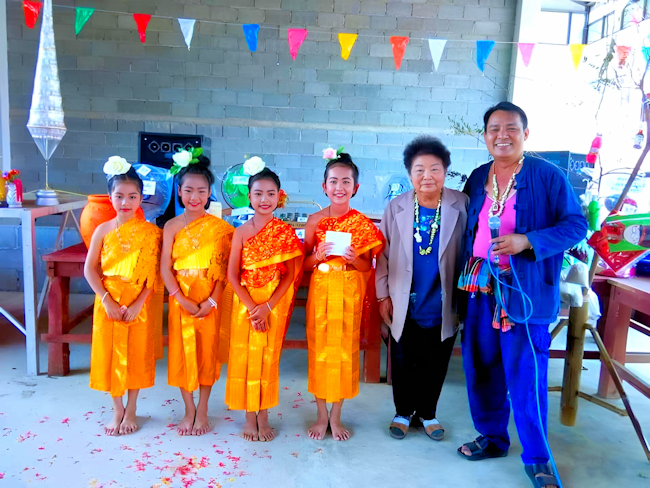Thailand has quite a complicated local government structure below the provinces which includes municipalities (Tesaban), sanitation districts (Sukhaphiban), districts (Amphur), subdistricts (Tambon), and villages (Mooban).
The bottom end that we are discussing are the Tambon and the Mooban.
A Tambon consists of a number of villages (average about 9), whose residents elect a headman (Kamnan) from among the village headmen (Phuyaiban).
The Kamnan is not a local government official as such, but he is confirmed in office by the provincial governor and receives a monthly stipend. The Kamnan records statistics, helps the district (Amphur) officer collect taxes, supervises the work of village headmen, and submits periodic reports to the district officer.
Each village (Mooban) elects a Headman (Phuyaiban), who generally functions as a middleman between villager’s and the district administration. Again he receives a monthly stipend.
The Phuyaiban’s duties included attending meetings at the district headquarters, keeping village records, arbitrating minor civil disputes, and serving as village peace officer. Generally the Headman (Phuyaiban) serves five years or so.
There is some controversy about whether the power of these local headmen is diminishing?
In the 1980s, the importance of the (Phuyaiban) seemed to be declining as the authority of the central government expanded steadily through the provincial and local administrations.
Since then the CEO approach of the Thaksin era and the gradual implementation of aspects of the Decentralization Act have probably pulled in opposite directions.
The CEO phenomenon tended to strengthen top-down control, while the Decentralization Act is opening up some new areas of local government influence, with developments like community health funds and Tambon health promotion hospitals.
The Phuyaiban have some clout in local communities, but they may be over-ruled by centrally-appointed district officers and the Tambon administrative organizations.
There is also the cross-cutting influence of certain local families and strong men who reportedly have a lot of power in Isaan.
As a foreigner, if you plan on living in a rural area, it is best to befriend the (Phuyaiban) and make sure there are no issues. It is best, whether deserved or not, to show him respect.
A foreigner may have more money but it is best to remain low key around villages leaders and give them some respect.
The (Phuyaiban) always think they are quite important, even though as a foreigner you may know people of greater importance. Best just to remain low key and not give the (Phuyaiban) any reasons to dislike you.


